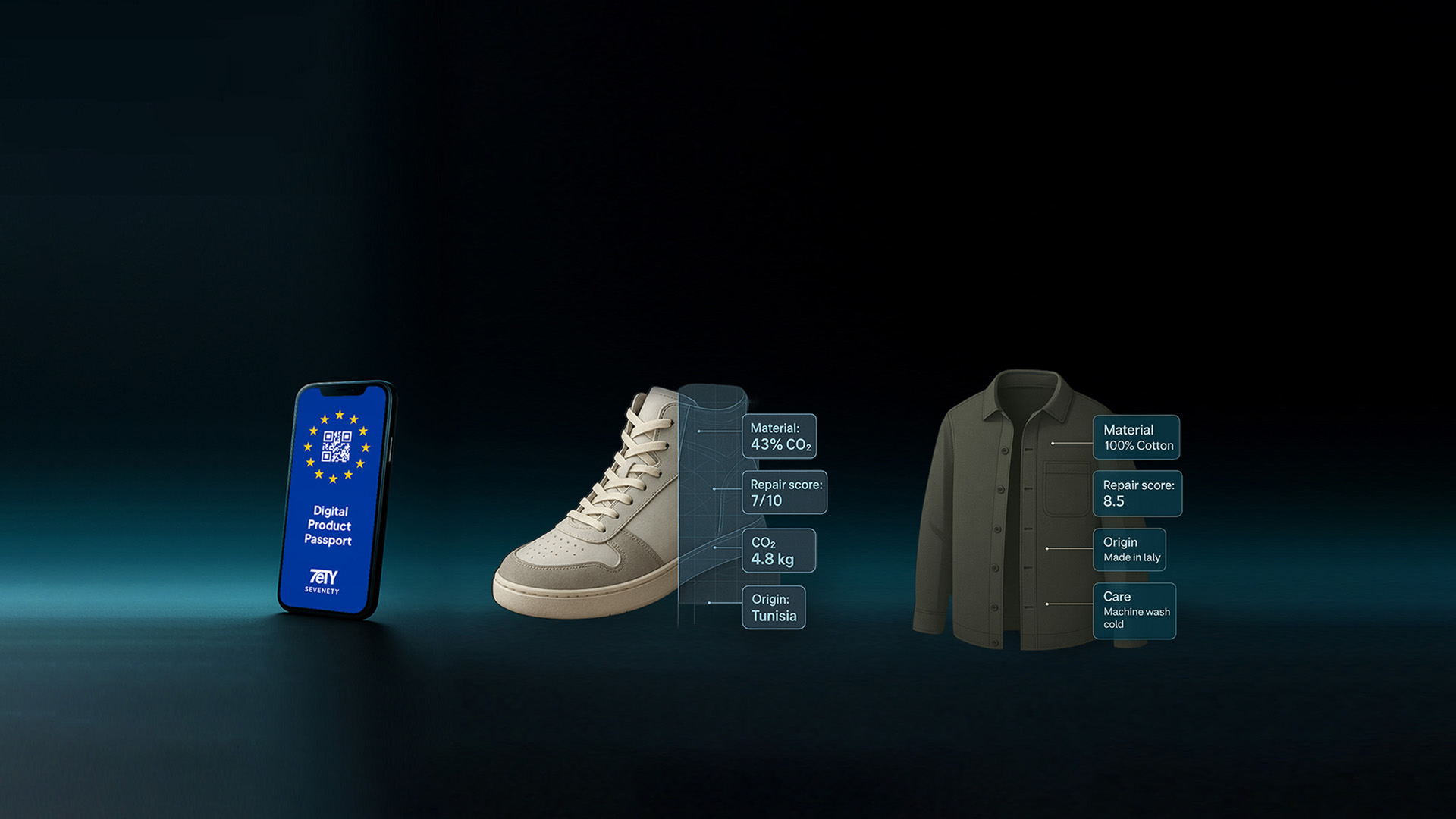
DPP is Coming!
Is Your Business ready?
We Don’t Just Advise. We Build.
We bring real experience, working demos, and full data integration to help you move faster with DPP.
Years of Experience
Our team brings 18+ years of experience in building smart, data-driven platforms for complex business needs.
Working Demo Ready
We’ve already built a DPP demo for batteries and textiles, so we don’t just talk, we show what’s possible.
Connects to Any System
Whether you use PIM, ERP, PLM, or spreadsheets, we connect, import, and structure your data for DPP.
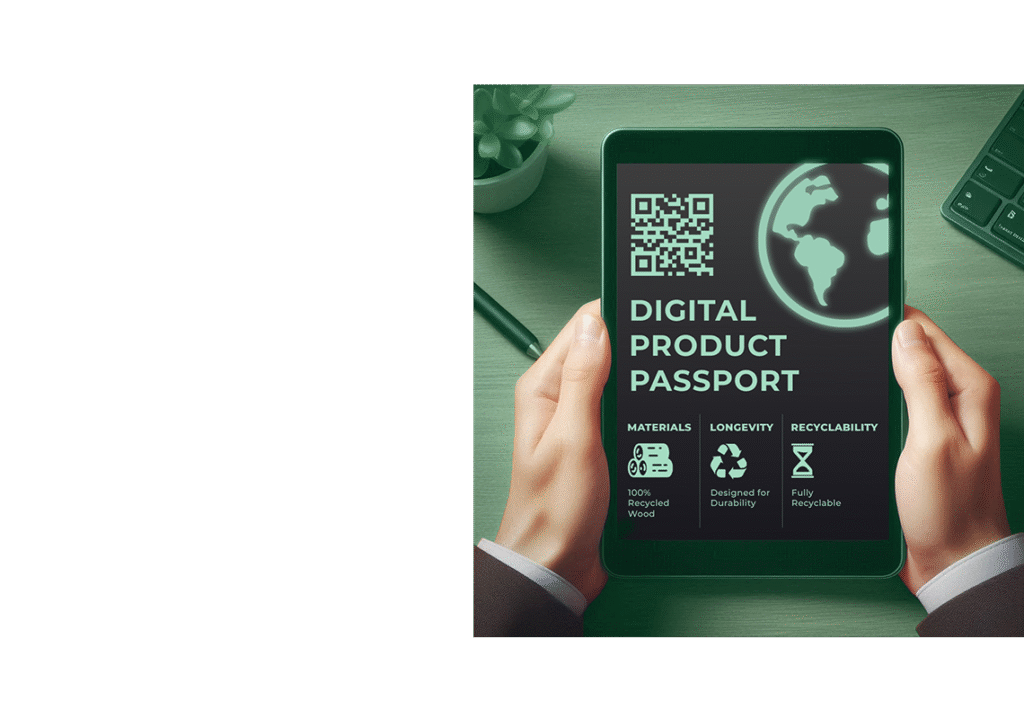
DPP is revolutionizing product data, making it smarter, more transparent, and ready for the future.
This isn’t optional. For businesses directly impacted, DPP will be mandatory under EU regulations. Indirectly, it will influence entire supply chains from manufacturers to retailers.
Those who act early can stay ahead of compliance requirements, boost transparency, and unlock new value.
We’re here to help you turn this challenge into a smart, affordable solution.
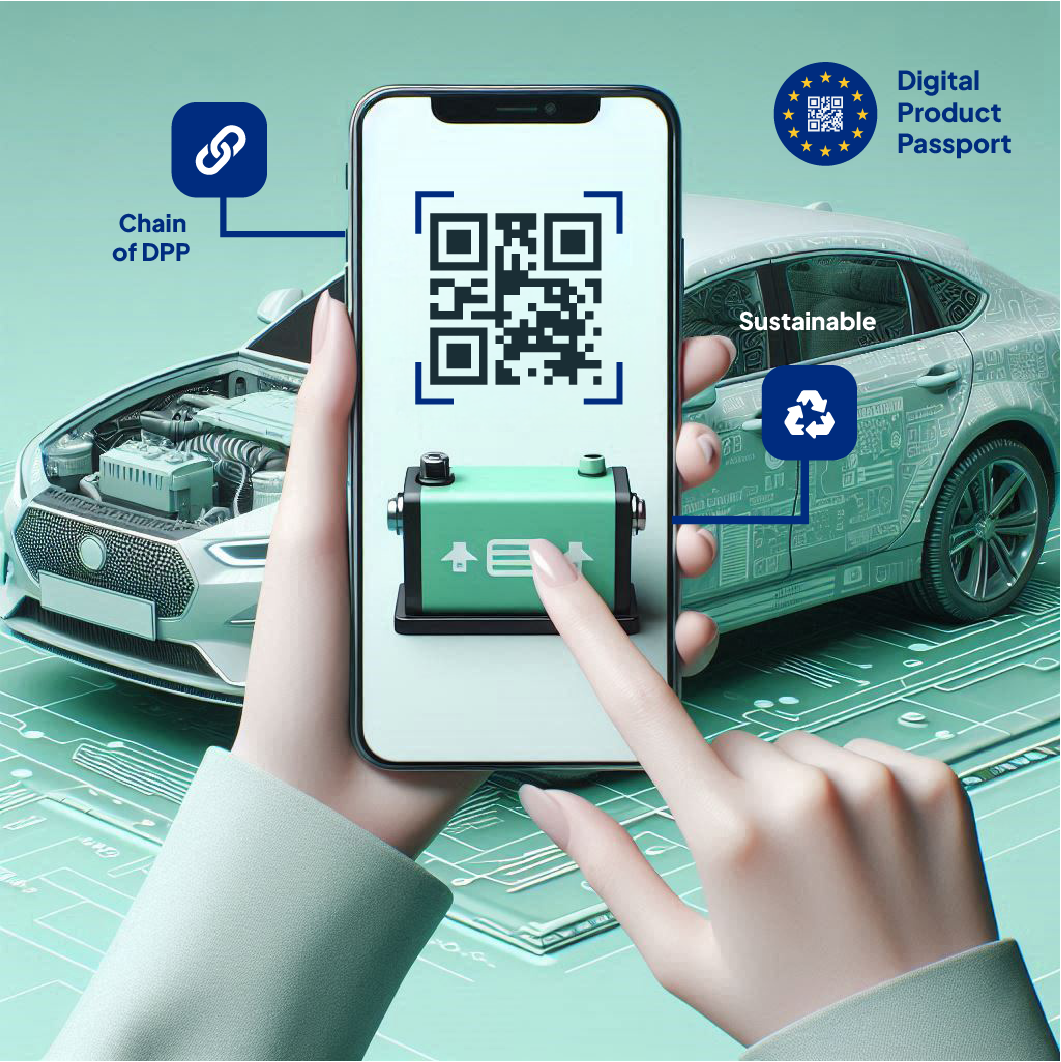
What is a Digital Product Passport (DPP)?
A Digital Product Passport (DPP) is like a digital identity card for a product. It includes key information such as:
- What materials the product is made of
- Where and how it was made
- How it can be repaired, reused, or recycled
The purpose of DPP is to improve transparency, traceability, and sustainability across the entire lifecycle of a product.
Under new rules from the European Union (EU), DPPs will become mandatory for certain product categories, starting with batteries, electronics, and textiles.
The DPP is accessible via technologies like QR codes, NFC chips, or digital platforms and will become a standard for product transparency across the EU.
Why Is the Digital Product Passport Becoming Mandatory?
The Digital Product Passport (DPP) is part of the European Union’s broader effort to improve product sustainability and traceability. It is being introduced under the Ecodesign for Sustainable Products Regulation (ESPR), which aims to reduce the environmental impact of products throughout their entire lifecycle.
DPP is becoming mandatory to support several key goals:
Reducing waste
by making it easier to repair, reuse, and recycle products
Lowering environmental impact
by improving control over materials and emissions
Enhancing transparency
along the supply chain, from production to end-of-life
Supporting the circular economy
by keeping products and materials in use longer
Achieving EU sustainability targets,
including those set by the Green Deal
By making this information available in a structured and digital format, the DPP ensures that manufacturers, suppliers, and consumers all have access to the data needed to make informed and responsible decisions.
When and for Which Products will the DPP Be Regulated?
The European Union will roll out the Digital Product Passport in phases, starting with the products that have the highest environmental impact. The DPP becomes mandatory starting in 2027, with different deadlines depending on the product group.
Key Timeline
January 2027
- Textiles & footwear
- Electronics & household appliances
February 2027
- Industrial batteries above 2 kWh
Mid-2027 onward
- Iron & steel products
- Plastics
Sectors likely to follow (2028–2030)
- Furniture
- Construction materials
- Chemicals
- Medical devices
- Toys
The final schedule will be refined as the Ecodesign for Sustainable Products Regulation (ESPR) is implemented.
Businesses that prepare early will be better positioned to meet requirements, reduce costs, and create long-term value.
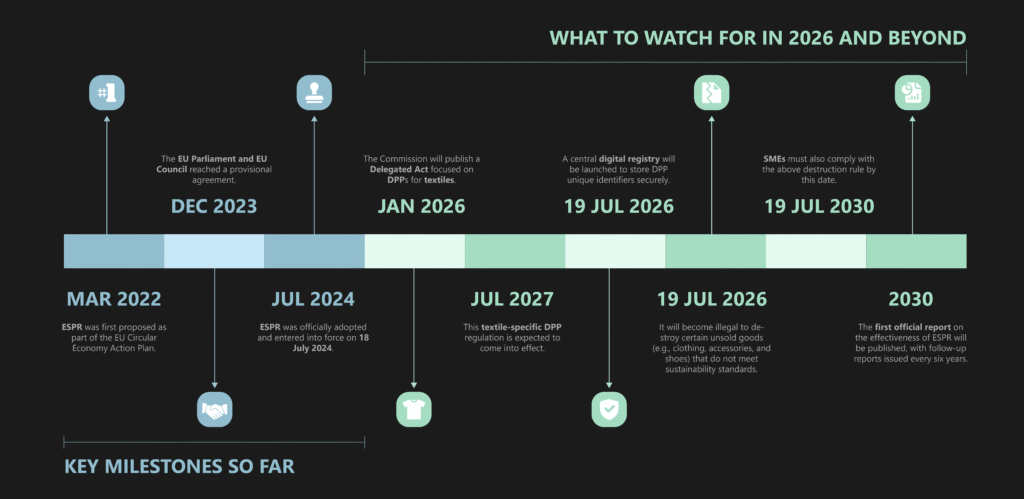
Above is a timeline showing when and which product groups will be affected under EU regulation.
Who Will Be Affected by the Digital Product Passport ?
The Digital Product Passport (DPP) will impact a wide range of businesses, especially those involved in manufacturing, distributing, or selling physical products within the European Union.
The level of responsibility depends on the role in the supply chain, but collaboration between all players will be essential. Companies will need to work together to build and maintain accurate, traceable product information.
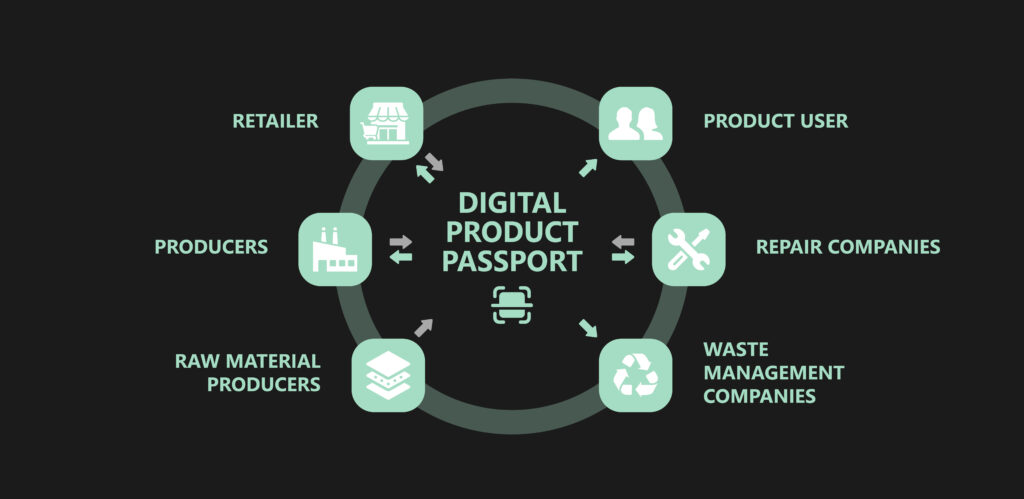
Some of the main groups affected include:
Manufacturers
Manufacturers will be responsible for collecting, organizing, and maintaining detailed product data throughout the product’s lifecycle.
Suppliers
Suppliers will need to provide transparent information about raw materials, sourcing, and production processes.
Retailers and brands
Retailers and brands must ensure that the products they sell comply with DPP requirements and carry the correct digital information.
Importers and distributors
Importers and distributors are expected to confirm that products entering the EU market meet all DPP standards.
Repair and recycling services
These companies will benefit from access to product data, helping improve repairability, extend product life, and recover materials more efficiently.
What Are the Benefits of the Digital Product Passport?
Although DPP is driven by regulation, it also creates strong opportunities for innovation, efficiency, and long-term value. Some of the key benefits include:

Improved supply chain transparency
Clear access to product data helps companies trace materials, detect issues, and build trust.

Stronger sustainability and compliance
Better tracking of environmental impact makes it easier to meet sustainability targets and comply with EU laws.

Support for circular business models
DPP enables repair, reuse, and recycling, helping companies reduce waste and create new service opportunities.

Greater consumer trust and brand value
Sharing verified product data with customers builds confidence and supports responsible purchasing decisions.

Operational efficiency
Centralizing and digitizing product information reduces duplication, manual work, and data errors.
What Information Is Inside A Digital Product Passport?
The Digital Product Passport contains key data about a product’s full lifecycle, from materials to manufacturing, and from use to end-of-life.
Here are the main types of information that may be included:
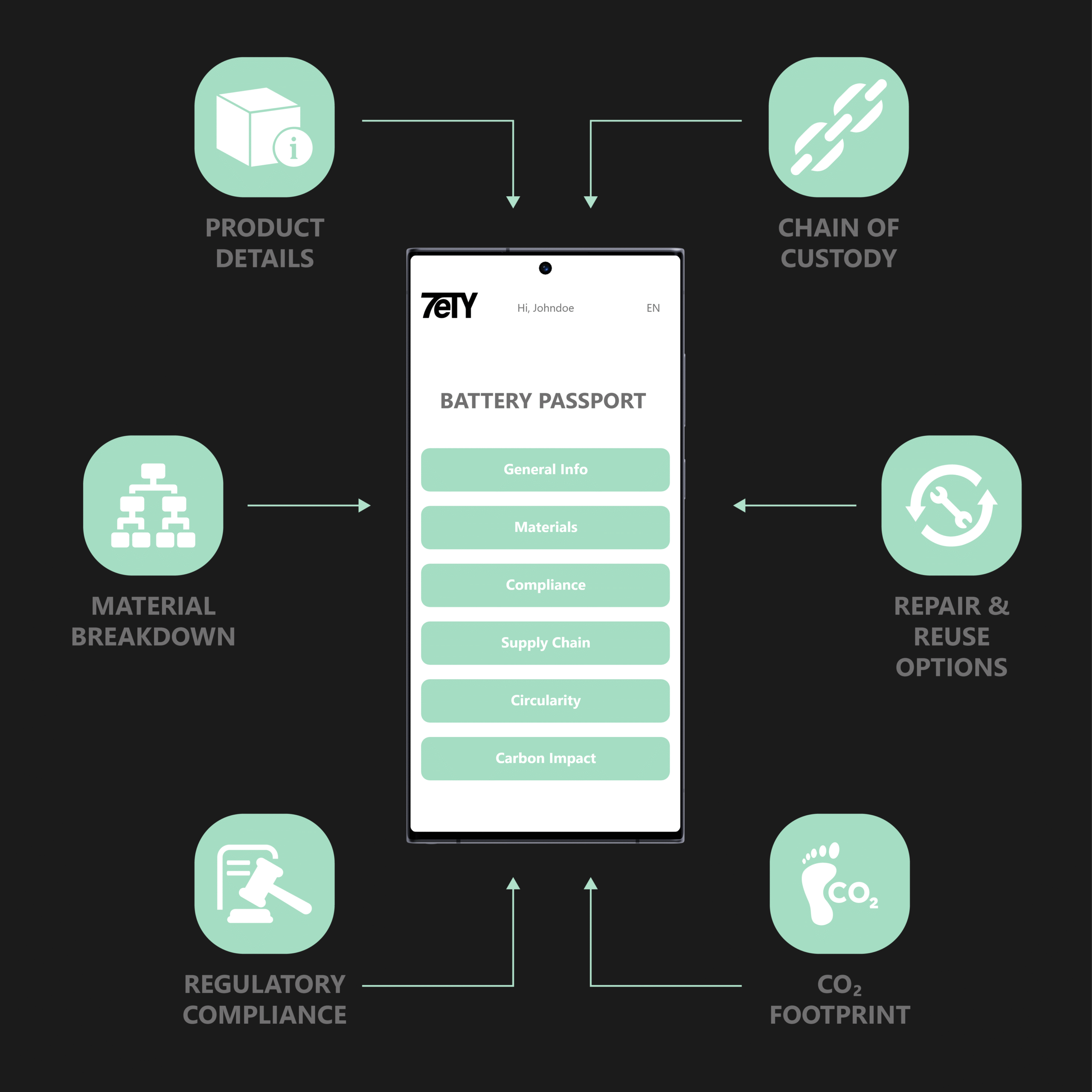
1. Product identification
Basic details such as product name, type, model number, and unique identifiers (like a QR code or serial number).
2. Materials and components
Information about what the product is made of, including raw materials, chemicals, and critical components.
3. Sustainability data
Environmental impact, carbon footprint, and energy or water usage during production.
4. Repair and maintenance instructions
How the product can be repaired or maintained to extend its life.
5. Recycling and disposal information
Guidelines for how the product or its parts can be reused, recycled,
or safely disposed of.
6. Compliance and certifications
Details about which laws, safety standards, or eco-labels the product meets.
7. Manufacturing and supply chain data
Where and how the product was made, including suppliers and production locations.
How Will the DPP Be Used in Practice?
A Digital Product Passport isn’t just stored, it’s used.
From manufacturer to recycler, every stakeholder can scan and access product information instantly.
How is the DPP accessed?
- QR code
- NFC chip
- Product app or platform
- Web portals (B2B/B2C)

A scan gives instant access to verified product data.
Who uses it?

Manufacturer
Tracks sourcing, production & compliance data

Retailer
Displays sustainability info to customers

Recycler
Sees materials & disassembly instructions
Where does the DPP appear?
- On product labels (QR/NFC)
- In repair platforms or service apps
- Inside supply chain software
- Linked to online product pages
Steps to Be Ready
Getting your products DPP-ready doesn’t have to be overwhelming.
With the right structure and proven process, your data can be prepared, validated, and shared clearly and efficiently.
1
DPP-Scan
Start with an analysis of your products and data landscape. We ‘ll assess your current setup and what’s needed for DPP compliance.
2
Organize Your Data
We help you structure product information to match the required DPP fields, like material composition, origin, and environmental impact to meets EU standards.
3
Integrate with Your Systems
We connect and sync your data, whether you use PIM, ERP, PLM, or spreadsheets.
4
Ready to Share
Your DPP data is now structured, validated, and ready to use. Publish it to your products, apps, digital platforms or supply chain partners.
Ready-to-Launch DPP Solutions
We’re not starting from scratch, we’re already building.
Discover our two purpose-built Digital Product Passport platforms, now in development for high-impact sectors.
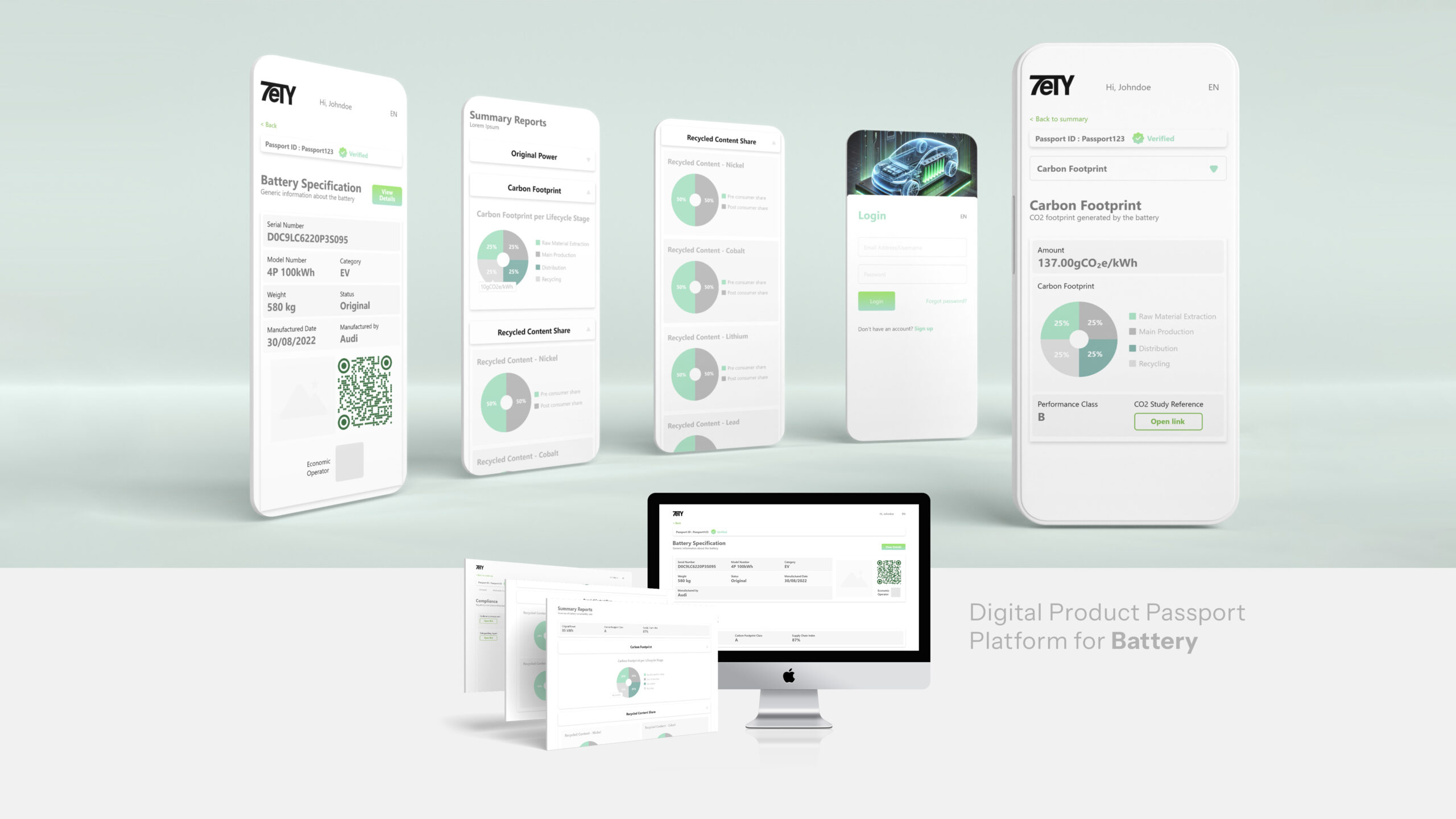
Digital Product Passport for Batteries
Empowering traceability, compliance & circularity.
We’ve developed a functional blueprint for a battery-focused DPP platform. It’s designed to track material sourcing, lifecycle emissions, and performance aligned with the upcoming EU Battery Regulation.
✅ Prototype-ready
✅ Covers heavy and light battery use cases
✅ Built for compliance, but open for customization
Digital Product Passport for Textiles
Driving sustainability in fashion, materials & supply chains.
Our textile DPP platform demo handles material breakdown, origin tracking, and reuse potential all built with ESPR requirements in mind.
✅ Live prototype for cotton/poly blends
✅ Customizable data structure for brands and manufacturers
✅ ESG and circularity-ready
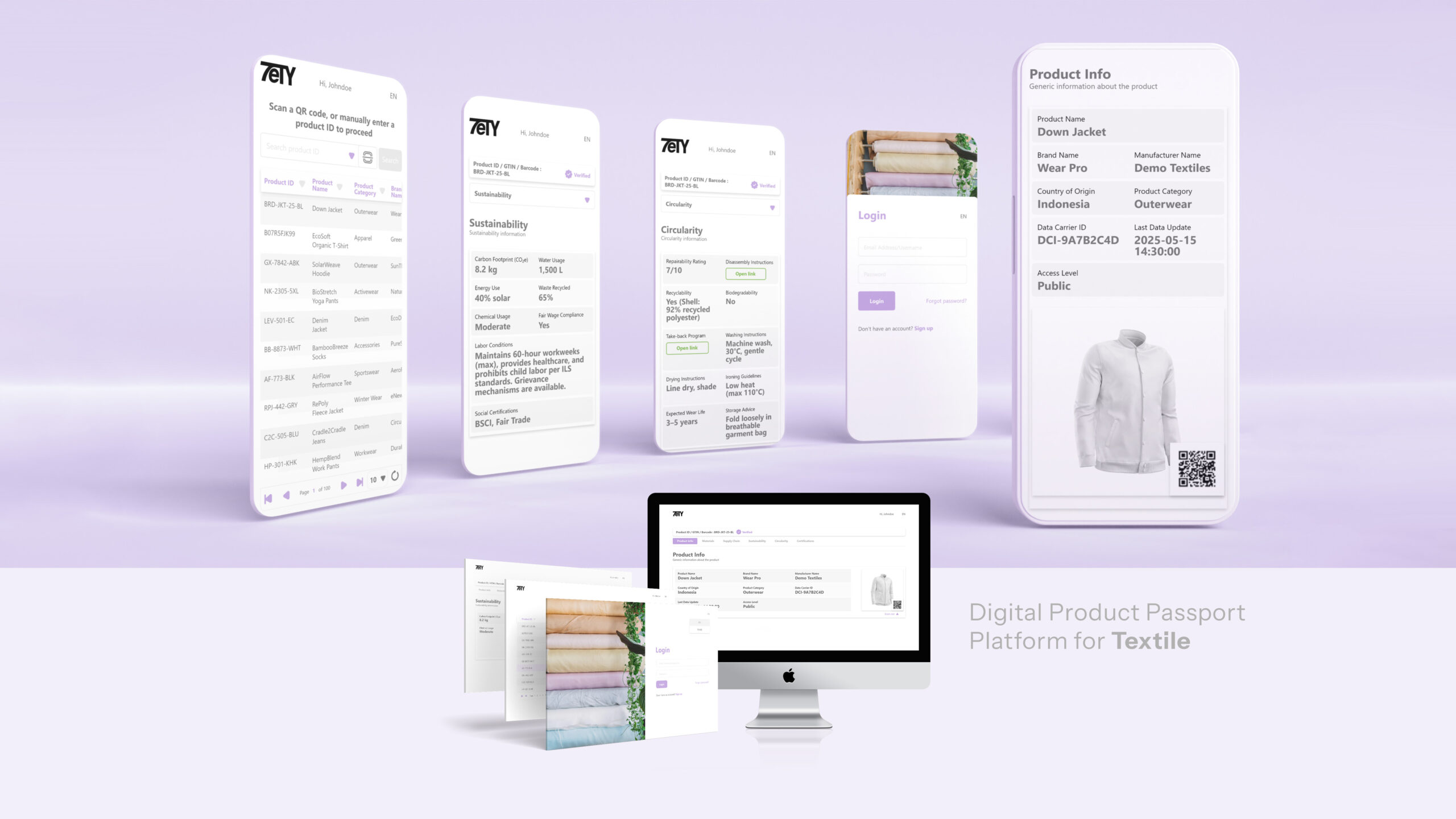
How We Can Help
We don’t just talk about the Digital Product Passport. We help you build it.
From data structure to system integration, we support your business at every step of DPP implementation.

Data Structuring
We define the right data model for your products, aligned with ESPR and DPP requirements.
- Material breakdown
- Origin & compliance
- Repair, reuse & recycling info

System Integration
We connect your existing tools, whether it’s PIM, ERP, PLM, Excel, or custom databases.
- API-based and file-based imports
- ETL processing
- Centralized product data flow

Platform Delivery
We help you publish and maintain DPP data across all relevant touchpoints.
- Product pages
- QR/NFC tags
- Supplier portals & B2B channels

Custom Demo & Sector Expertise
We’ve already built working demo platforms for the battery and textile industries.
- Real data, real UX
- Pilot-ready for early adopters

Book Your Free DPP Consultation
Let’s look at your current product data and explore what’s needed to become DPP-compliant. Whether you’re in battery, textile, or another sector. We’re ready to support you.
Get in Touch!
We’re excited to hear from you! Whether you have questions, need support, or want to explore our services, our team is here to help. At Sevenety, we value your ideas and are committed to turning them into reality. Reach out today, and let’s start a conversation that drives your success!
